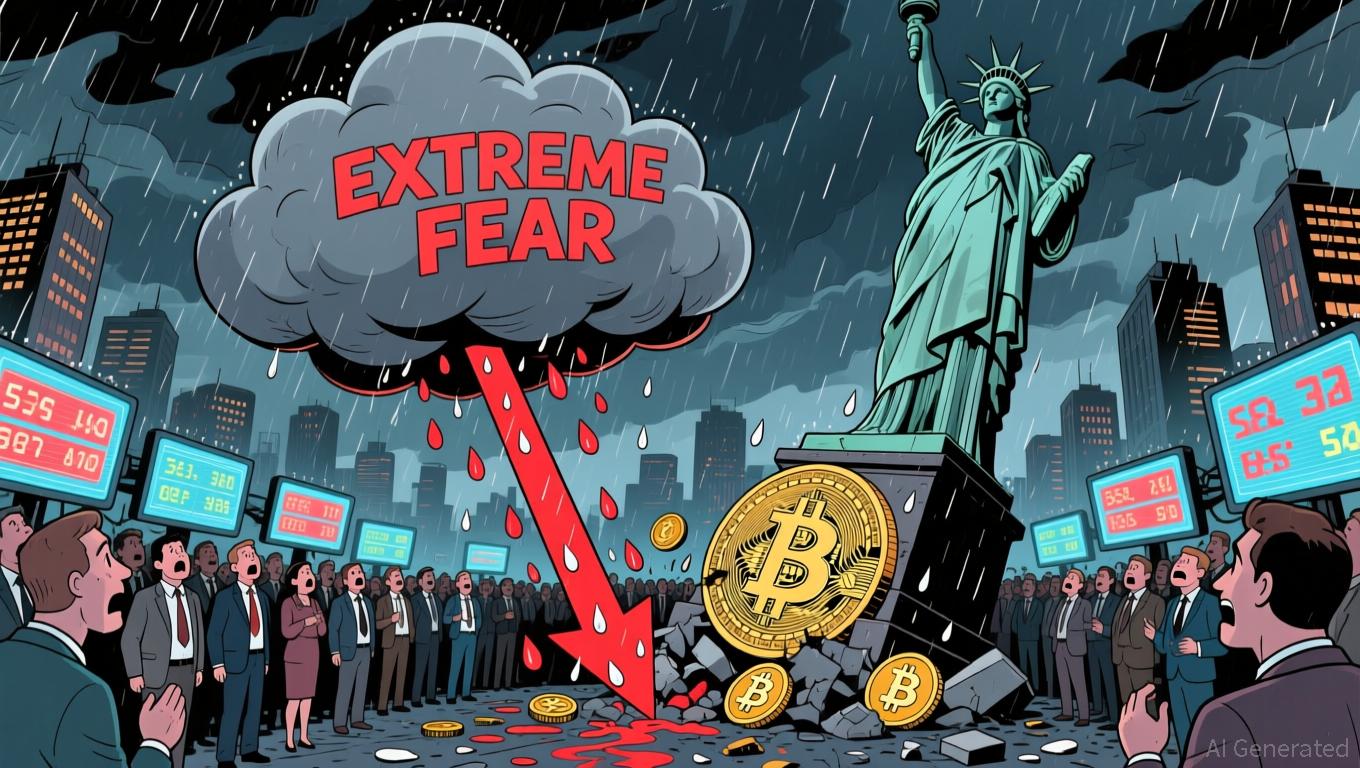Ozer’s Passing Sparks Renewed Demands for Tighter International Cryptocurrency Regulation
- Faruk Fatih Ozer, Thodex founder, was found dead in prison on Nov 1, 2025, amid suicide investigation. - He served 11,196 years for a $2.6B crypto fraud, exposing systemic risks in unregulated exchanges. - His death reignited global calls for stricter crypto oversight and transparency in regulatory frameworks. - Turkish authorities introduced new regulations, but critics highlight ongoing gaps in investor protections.
Faruk Fatih Ozer, who established and previously led the now-defunct Turkish crypto exchange Thodex, was discovered deceased in his jail cell on November 1, 2025. Authorities immediately began investigating whether the 32-year-old’s death was a suicide. Ozer had been sentenced to 11,196 years in prison for masterminding a $2.6 billion fraud, which ranks among the most significant crypto scams ever recorded, according to a
Ozer, who left school before graduating high school and gained fame as Thodex’s founder, escaped to Albania following the platform’s sudden closure in April 2021, which left 390,000 users unable to access their funds. He was apprehended in Albania in August 2022 and later extradited to Turkey, where he was found guilty of fraud, money laundering, and leading a criminal group, according to

The Thodex scandal revealed deep-rooted weaknesses in the cryptocurrency industry. Prosecutors initially assessed the losses at $24 million, but Turkish news sources and blockchain analytics firm Chainalysis later raised the estimate to $2.6 billion, as detailed by CryptoTimes. During Ozer’s trial, it was alleged that he diverted $253.71 million in crypto assets through fraudulent means, transferring the money into wallets he controlled—a detail later emphasized in Bitget’s reporting. The incident highlighted the dangers of unregulated exchanges, with critics pointing to a lack of transparency in the investigation and inconsistencies between the original and updated loss figures, as reported by Bitget.
Ozer’s passing has fueled ongoing discussions about safeguarding investors in the digital asset market. Turkish regulators have since enacted new rules, but the episode continues to serve as a warning for authorities globally. “The Thodex affair demonstrates the pressing need for comprehensive regulation to avert similar disasters,” commented an industry expert, reflecting the views of lawmakers and financial professionals cited by CryptoTimes. The probe into Ozer’s death is ongoing, with officials reviewing prison conditions and the mental health of inmates serving lengthy sentences—an issue also brought up in Bitget’s reporting.
---
Disclaimer: The content of this article solely reflects the author's opinion and does not represent the platform in any capacity. This article is not intended to serve as a reference for making investment decisions.
You may also like
Japan Unveils $110B Stimulus: Major Shift from Fiscal Restraint to Economic Expansion and National Security
- Japan's PM Sanae Takaichi unveils $110B stimulus to combat stagnation and bolster security amid China tensions. - Plan includes tax cuts, utility subsidies, defense spending, and strategic investments in AI, semiconductors , and shipbuilding. - Funded by 14-trillion-yen supplementary budget, with potential expansion to 20-trillion-yen ($133B) as per analyst estimates. - Shift from austerity reflects Takaichi's hardline security stance and response to China's travel advisory over Taiwan remarks. - Impleme

Bitcoin News Update: Bitcoin Reaches $96K Amidst Institutional Interest and Challenges from Regulations and Price Barriers
- Bitcoin surged past $96,000 as buyer accumulation and seller exhaustion drove short-term recovery, though $106,000–$118,000 remains a key resistance zone. - Harvard’s $443M investment in BlackRock’s IBIT highlights growing institutional adoption, contrasting traditional preferences for private equity. - Bitcoin Depot reported 20% Q3 revenue growth but faces regulatory challenges, expanding internationally while projecting Q4 declines due to compliance costs. - MicroStrategy’s Michael Saylor denied Bitcoi

Bitcoin News Today: Bitcoin Faces $62K Drop Threat Amid Fed's Data Silence Predicament
- Bitcoin faces $62K crash risk amid Fed uncertainty caused by U.S. government shutdown's "data blackout" disrupting inflation/labor data. - Post-Nov 13 reopening saw BTC rebound above $102K, but markets remain fragile with 20% decline from October peak despite $140B ETF growth. - Fed rate cut odds dropped to 52% for December, creating volatility as institutions like Harvard Endowment invest $443M in Bitcoin ETFs. - U.S. miners struggle with 37.75% global hashrate share amid lack of federal incentives, con

Bitcoin Updates Now: Crypto Faces a Standstill as Market Anxiety Meets Harvard’s Confident Bitcoin Investment
- Alternative Data's Fear & Greed Index hit record low 10 on Nov 16, signaling extreme crypto market fear and frozen investor sentiment. - Bitcoin fell 5% to $96,000 while CD20 lost 5.8% as profit-taking, liquidations, and liquidity declines accelerated selloffs. - Rising U.S. Treasury yields and central bank uncertainty worsened losses, with Nansen noting "perfect storm" of macro risks and institutional outflows. - Harvard's $443M IBIT ETF investment contrasts current bearishness, highlighting diverging i
